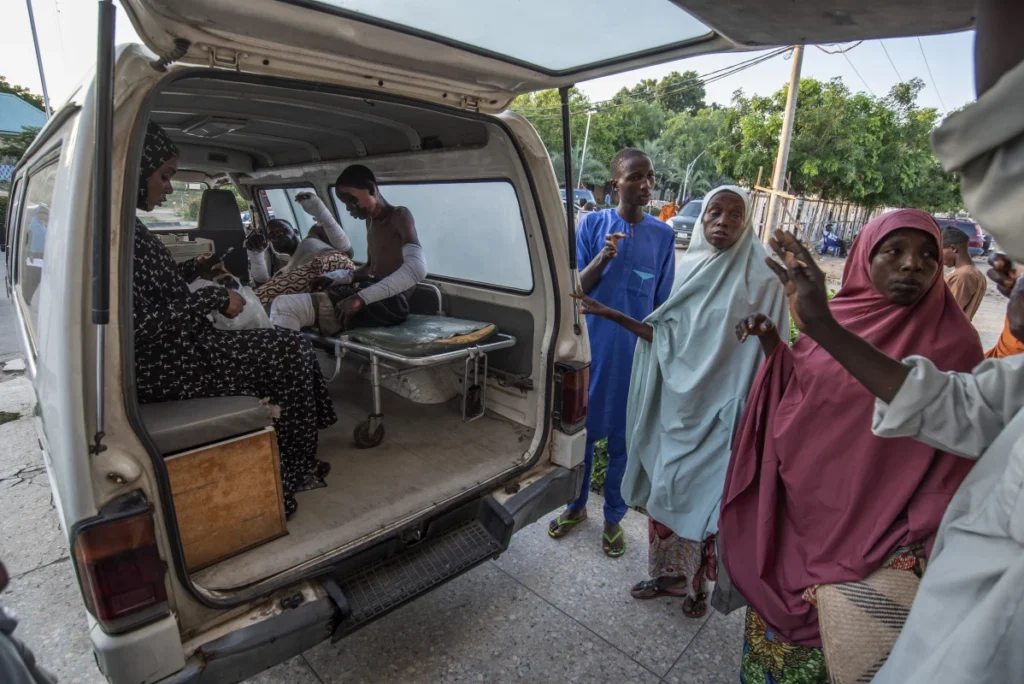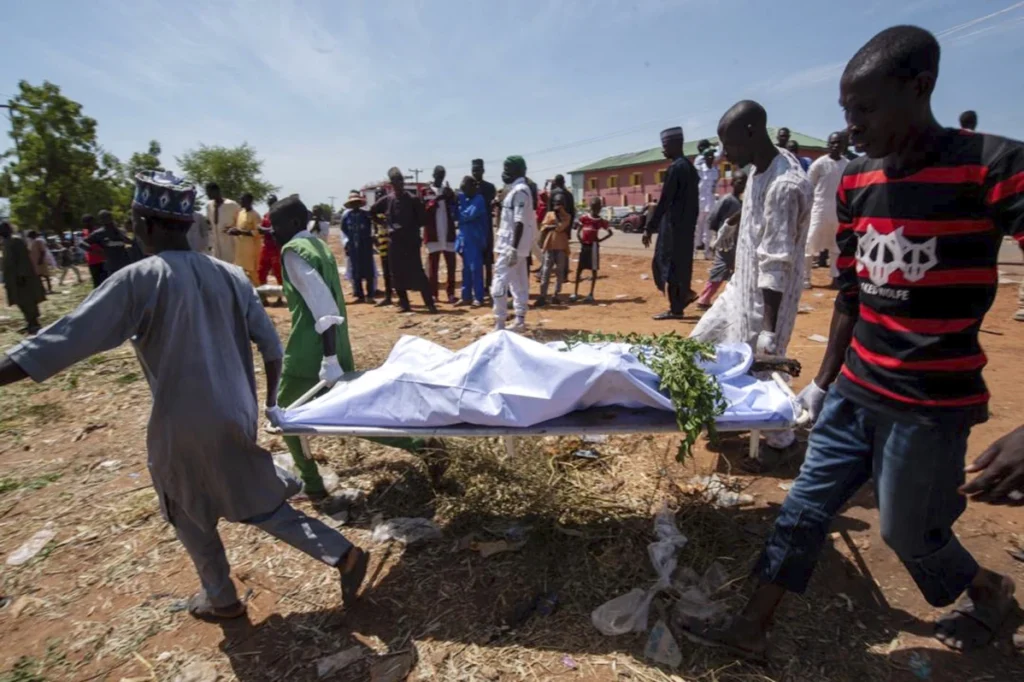
More than 140 people, including children, were killed when a gasoline tanker overturned and exploded in flames in northern Nigeria, emergency services reported Wednesday. The tragic accident occurred in Majiya town, Jigawa state, as local residents rushed to scoop up spilled fuel before the tanker burst into a “massive inferno.” Dozens more were injured in the blaze.
The deadly explosion is the latest in a string of similar incidents in Nigeria, a country where tanker accidents are frequent due to the lack of an efficient rail system for transporting cargo. Rising fuel prices, which have tripled since the government removed gas subsidies, have driven many desperate citizens to risk their lives by collecting spilled fuel from crash sites.

The accident took place at midnight when the tanker’s driver lost control on a highway, police spokesperson Lawan Adam said. In the rush to salvage fuel, most victims were unable to escape when the fire ignited.
Nura Abdullahi, head of the National Emergency Management Agency in the region, confirmed that nearly 140 people were buried in a mass grave, while others were laid to rest privately. “Most of the bodies were unrecognizable,” Abdullahi said. Dr. Haruna Mairiga, head of Jigawa emergency services, added that many victims were “burned to ashes” on the spot.

“If they knew the danger, they wouldn’t have gone to fetch the fuel,” Mairiga explained, while local resident Sani Umar recounted the chaos that unfolded. “People were running in all directions, screaming for help,” he told Reporters.
Fuel tanker accidents remain a serious issue in Nigeria. In 2020 alone, more than 1,500 such accidents occurred, resulting in 535 deaths. Despite the frequency of these incidents, experts point out that prosecutions are rare, and families of victims often go uncompensated.
The latest tragedy has reignited concerns about safety enforcement and regulations in Nigeria’s transport sector. Many tankers do not adhere to international safety standards, said Timothy Iwuagwu, president of the Institute of Safety Professionals of Nigeria. He also criticized a lack of awareness campaigns and enforcement of safety measures, saying, “There are also not enough awareness campaigns, and people are not willfully compliant.”
This devastating accident calls attention once again to the urgent need for stronger safety regulations and more proactive enforcement to prevent future tragedies in Nigeria.
